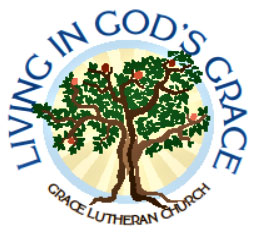Our time with Covid has given birth to some peculiar practices. One concerns funerals. For the past 2½ years, when a loved one died and friends inquired about when services would be held, they were typically told, “Oh, we are just having a celebration of life later on.” Why hurry, the family is thinking? Why not wait weeks or even months to assemble? No rushing to make expensive flight reservations. No concern about the body since either cremation or private burial has already taken place.
Nowadays these tend to be more casual affairs in funeral parlors, with photos, a slideshow and reminiscences of family and friends who dutifully file up to the microphone. If there is any music, it’s the likes of Elvis. Maybe there is a reading from scripture, maybe a pastor or chaplain is present, but the main purpose is to remember the departed one and give thanks for who they were.
This is fine as far as it goes. Yet for those who have died in the faith, it is no substitute for a Christian funeral in a church. Reminiscences can take place during the luncheon, where slideshows and photo boards can also be enjoyed. But the funeral liturgy properly located in a church, enacted in sacred space, is something else altogether and occupies a holy place in our life as well as in our death.
The funeral brings together the body of the deceased with the gathered the body Christ so that those present may grieve their loss, commend the person into God’s care, and accompany them on the start of that great journey in the conviction that death is not the end—that God’s last word is resurrection. We need to hear this word of life as often as possible and especially when death is staring us in the face. The belief that life is stronger than death is what carries Christians through every day and enables us to cope with all manner of worldly setbacks and losses.
If we live out this truth in our life, then when our final moment on earth comes we will meet it in that same spirit.
The “celebration of life” is not a Covid phenomenon. The practice has been on the rise for decades. But our newfound adaptability acquired during the pandemic makes this an ideal time to return to a more faithful witness not only of life but of death. Let us grasp this moment to rediscover the Christian funeral as a great drama that connects death, our final baptism, with the ritual of our initial baptism. In the words that open the Lutheran funeral liturgy, “When we were baptized into Christ Jesus, we were baptized into his death. We were buried therefore with him by baptism into death, so that as Christ was raised from the dead by the glory of the Father, we too might live a new life. For if we have been united with him in a death like his, we shall certainly be united with him in a resurrection like his.”
As Tom Long has written in his book Accompany Them with Singing—The Christian Funeral, the ritual is not just a litany of inspiring words; rather, it is a dramatic event in which the church acts out what it believes to be happening from the perspective of faith. Those present are not mute observers but “actors, speaking, singing, and praying their lines in the great drama of death and life.”
And what is the point of this drama? That death is not the end. That the deceased is going somewhere! Just like a loved one heading off for any great journey, we want to be present to give them a good sendoff. The Christian funeral gives us this great farewell. In hymns we pour out our lament and hope. Through scripture we affirm the truth of the gospel. With glad hearts we receive proclamation that elaborates on that truth. And with prayers we come into God’s presence and are bound more closely together for our own healing and the healing of the world.
Why go to all this effort, you might ask? Doesn’t the deceased end up in the same place regardless of how or whether they are accompanied? Yes, but why would we miss out on the chance to surround them with hymns, psalms, prayers and promises that lift them into God’s care using the treasures of worship handed down to us across the ages? Through these means, their cry becomes ours: “Maranatha! Come, Lord Jesus!”

